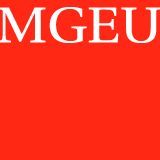This article by Peter Olfert was also published in the Winnipeg Free Press, Friday, December 15
Last Saturday, the Winnipeg Free Press ran a column, It’s time to put a cork on liquor monopoly, advocating for the end of publicly-run liquor stores. The writer also complained about being asked for identification to show that he was over age 25. The writer seems to suggest that this probably wouldn’t have happened at a privately run store, and that MLCC staff were simply being “rule adhering robots, rather than rational human beings” when they asked for I.D. We beg to differ. 
As regulator of the sale and service of beverage alcohol, MLCC staff is required by law to ensure liquor does not get sold to minors. Therefore, it is the duty of all Liquor Mart employees to ensure that proper identification is provided by anyone appearing to look under the age of 24. The Show Your Age program, which is run at all MLCC outlets in Manitoba, was developed specifically to address this issue. Signs throughout MLCC stores are intended to inform customers that sometimes age is difficult to determine and that photo identification is required.
The staff did exactly what they should have and, through their actions, they underline an important reason why we believe public management in the public interest is more advantageous than private, for-profit when it comes to the sale of alcohol: it’s about protection and safety – and a few other things, too.
Let’s face facts: alcohol is not just any product like, say, coffee or chocolate. It is an intoxicant. It can be dangerous if used improperly. It can be abused, and therefore its sale should be responsibly regulated.
The MGEU has advocated strongly that liquor control systems are better able to protect consumers from alcohol abuse than are profit-driven facilities. MLCC staff has no vested interests in what you buy and have no sales quotas to meet. For these and other reasons, they are less likely to sell alcohol products to minors or intoxicated persons.
We also continue to maintain that revenues from the sale of alcohol should be used to help fund addictions programs. Further, instead of lining the pockets of privateers, liquor revenue can be better used helping to reduce our debt or bolstering Manitoba’s health and education systems. And consider this: in smaller, more remote communities, private stores may not be profitable, meaning consumers would do wihtout unless a government store is available.
Recent studies have shown that privatization in other jurisdictions has led to higher prices (mom and pop stores are being scooped up by large chain operations that charge more), a decrease in consumer choice (special products that don’t sell won’t get shelf space), and an increase in social and policing costs (sales first, safety later).
This has certainly been the case in Alberta where the decidedly right of centre Edmonton Sun is even calling for the government to step in to fix the mess liquor privatization has created.
For example, the number of stores has exploded in Calgary from 23 in 1995 to 300 today (some only 50 feet apart). Calgary Police report a steady increase in impaired driving. Calgary City Council has just launched a review of its by-laws in an effort to control the continuing proliferation of liquor stores.
And to make things worse for the proponents of private, for-profit liquor stores, the private-sector operator of Alberta’s liquor warehouse/distribution system is failing to keep pace with orders, resulting in massive liquor shortages. Some liquor retailers are apparently threatening lawsuits.
Instead of criticizing liquour store workers, let’s offer a word of thanks to the hundreds of MLCC employees across this province who provide invaluable service for too little thanks.
Peter Olfert
